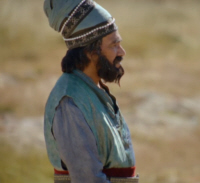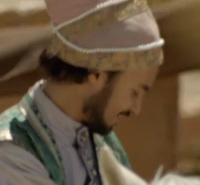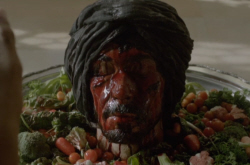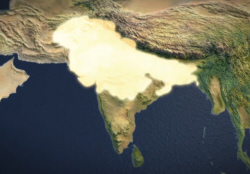Moghul Empire
Shah Jahan and Dara and Aurangzeb
Andrew Marr’s History of the World - Age of Revolution
The best of them thought of themselves as modern, built magnificent palaces, and drew in Enlightenment thinkers, like Voltaire. But as even Europeans understood, the greatest of the absolute monarchs weren’t in Europe at all.
India was dominated by the all-powerful Muslim Moghul emperors.
Under Shah Jahan, the Moghul empire grew to more than 100 million people. They called him “king of the world”. When his wife, Mumtaz Mahal, died in childbirth, he built her a giant marble tomb.

The Taj Mahal is the world’s most extravagant and beautiful monument to love. But it’s also a symbol of absolute power.
Like the absolute monarchs who ruled in Europe, the Moghul emperors used stone to display their power. But Shah Jahan also ruled a more open-minded court than any in Europe at the time.
Shah Jahan’s grandfather, Akbar the Great, began an extraordinary tradition of Moghul liberalism.
He brought together, for instance, people of all faiths - Sunni and Shia Muslims, Hindus and Christians - and got them to argue in front of him so he could see whether there were fundamental truths round which mankind might unite.

He was also a great patron of the arts, and what he reminds us, is that absolutism, when it’s successful, can create great breakthroughs and not only in stone. But the weakness of the system is that it depends absolutely on the character of whoever happens to have made it to the top.
And a struggle at the top was about to begin. It would annihilate any thought of an Indian Age of Reason.
In September, 1657, Shah Jahan fell seriously ill. His eldest son Dara was his favoured heir. Dara was another in the line of essentially tolerant and open-minded moghuls but his brother, Aurangzeb was very different. He was a harsh military man who wanted to impose his strict version of Islam on all of India.

To do that, he’d have to get rid of his brother. But this was much more than a struggle between two brothers. This was a struggle for the future of the Empire and everybody living in it.
In May 1658, Aurangzeb marched on Agra, proclaimed himself emperor… And imprisoned his father, Shah Jahan. Aurangzeb captured Dara and paraded him and his son through the Streets of Delhi. He accused him of heresy and condemned him to death.
So far, so grisly. But it’s not untypical of the problems faced by absolute dynasties around the world. Assassination and wars of succession were also routine amongst the ruling families of Europe. The only thing that really singles out Aurangzeb’s case was his taste for takeaways - Dara’s head on a platter.

Aurangzeb would rule for 50 years, a half-century when he imprinted his harsh and fanatical personality on the country. Aurangzeb’s version of Islam involved the destruction of Hindu temples, setting up a system of censorship and a great deal of banning.
He banned alcohol, of course. He ended the great tradition of beautiful paintings, and he also banned dancing, he banned writing historical documents. He even, inside was own court, banned the playing of music. When Aurangzeb saw his musicians carrying their silent instruments he was told that since he’d killed music, they were off to bury it, he replied contemptuously he hoped they buried it deep. In the end, absolute rulers tend to turn tyrant.
The temptation to shut people up, to ban things, is irresistible. Aurangzeb plunged India into a 26-year battle to destroy any rivals in the Hindu South. He built the most extensive empire so far in Indian history.

But it came at a terrible cost. Aurangzeb brought the Moghul empire to the very edge of bankruptcy, so weakening it, that soon afterwards, the British were able to kick down the door and take over India. Absolute regimes tend to collapse for the same reason - that eventually somebody is in charge who leads the Empire on a disastrous path. And to give him his credit, perhaps Aurangzeb in the end understood this. On his deathbed, he said to his son, “I came alone and I go as a stranger. I do not know who I am or what I have been doing.”
The British seizure of India would be remarkably fast. But at just the same time, they’d get a terrible shock of their own.
